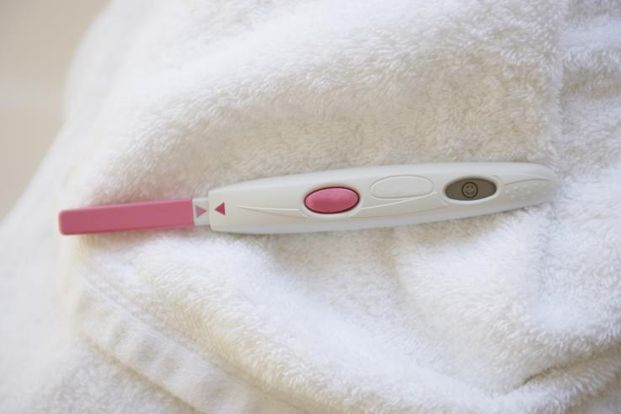2 weeks and 2 days pregnant

Here a human egg cell 24 hours after fertilization is artificially coloured purple. Around the egg is a thick layer (yellow) that has now become impenetrable. The two red areas, or pro-nuclei, contain genetic material from the mother and father before it has fused.
When your egg has been fertilized, hormonal changes naturally occur to stop your normal menstrual cycle.
At this early stage following fertilization of your egg, the developing embryo will signal its existence to the pituitary gland in your brain and switch off your menstrual cycle. It does this by producing a new hormone, called human chorionic gonadotrophin (hCG). This hormone over-rides your usual monthly cycle and maintains the high progesterone levels that are essential for your pregnancy. The hormone progesterone is essential to an embryo’s survival in the uterus, and therefore to your baby’s wellbeing and development before birth.
Later, starting around weeks four to five, your embryo will make all the hormones needed to maintain its own life. Of course, its nourishment and shelter come from you, but even in the very early weeks of pregnancy the embryo behaves like an independent human, at least as far as its hormones and genes are concerned.
I’ve been doing ovulation tests, but they’ve all been negative. Does this mean I haven’t ovulated this month?
You may still have ovulated, even without a positive test. It’s possible to miss the LH surge by chance. This is more likely if you don’t test at the same time each day, or if you drink a lot of water.
Remember, too, that ovulation tests are imperfect, and it’s possible to get a false negative. If you had other symptoms of ovulation, such as pain, or changes in your mucus, it’s likely that you ovulated anyway. However, if you have gone two or three months with consistently negative tests, then you might not be ovulating regularly. In that case, it’s worth seeking medical advice.

When you’re trying to conceive, you’ll find you are much more aware of your general health. As a rule, colds, flu, and other common infections are unlikely to affect your fertility or your unborn baby if you have conceived. Some infections and viruses, however, can have a more serious impact:
Shingles and chickenpox (both caused by the same virus) are best avoided around the time of conception if you haven’t had chickenpox before.
Food poisoning, for example caused by listeria bacteria, can be harmful.
Toxoplasmosis can be contracted from handling cat faeces.
Too much testosterone can affect a woman’s fertility.
Small quantities of testosterone are secreted from the adrenal gland and the ovaries. In low levels it may aid fertility, but too much can affect the menstrual cycle and lead to infertility.
Be the first to support
Be the first to share
Comment (0)
Related Blogs & Vlogs
No related events found.
Loading more...